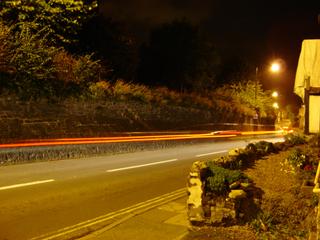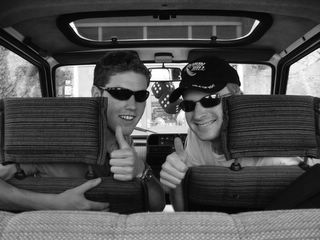Thursday, October 27, 2005
Sunday, October 23, 2005
Contemptuous suggestions
Well, (as all great sentences begin) this week's lecture looked at BBC online, and thoroughly enlightening it was too. But the one point which interested me most was, not unusually, a complete tangent. At one point someone asked the question of whether the BBC's easily accessible news archive increased the possibility of contempt.
The theory is that a juror could quite easily type in the name of a defendant into the BBC and find out that two years ago Bruce Butterneckle was sent to prison for the world's biggest ever paperclip cartel. As a result, they are more likely to feel that Bruce is likely to be guilty of running a massive hole-punch cartel than someone with no previous. Of course, Bruce is guilty as hell - the little scamp - but needless to say it's a pretty important part of the legal system which could be undermined.
The speaker from BBC Wales said that they got around this problem by arguing that a juror could equally look up a local paper's archive in paper form and find out the same information. Of course, this is a rubbish argument-the effort of sifting through 20 years of the East Grinstead enquirer for a mention of a particular crime is incomparable to typing a name into a search engine.
Realistically, if something were done it would require either a whole new wing to Bush House or a scrapping of the BBC's archiving policy. But then, the problem isn't just the BBC, there is also the parasitic (though useful) google news, lexis-nexis news database and one or two other websites out there. It would be a pointless task trying to get people to remove mentions of old crimes just in case a juror came across them.
It seems to me that both the courts and the press are quite happy to pretend they haven't noticed for now. This seems to be solution one - keep quiet and hope no-one claims they had an unfair trial thanks to a search engine.
Another option is to change the law and allow previous crimes to be mentioned in court, as was banded about as an idea a couple of years ago. There's clearly massive issues with this for innocent people, which the law is supposed to support. If you're unluckly enough to be wrongly accused more than once you might as well prepare for porridge.
A final option I can see is to make a massive fuss about it, send out a load of press releases, get one of the Jonathan's involved (King or Aitken) and write it into law that jurors will be flogged in public if they dare to look up someone's name in a search engine. In reality, this would make everyone desperate to do so when they might not have thought of it before.
So the conclusion? I say keep quiet about it and accept that the legal system is that little bit weaker than it was before. Well, it's never been perfect has it?
Monday, October 17, 2005
The Meaning of Blog
I've finally remembered the reason for this blog-a deeply thoughtful and analytical critique of our lectures on Online Journalism, focussed around the five guest speakers from BBCi, IPC, Telegraph.co.uk, BBC Wales and a representative of 'citizen journalism'.
Despite the clear credentials of the first four, I have a funny feeling it will be the last speaker who could be the most interesting. While BBC online et al will continue to change I think they are relatively established formats now-colours will change, blackberries will be integrated and so on, but the way they gather news and effect journalism probably won't change all that much. But, 'citizen journalism' could be different.
I'm not from the school of thought that thinks that journalists will die out as camera phones allow people to make their own news, and viewers turn to blogs for news - clearly someone will need to present the mass of stuff in consumable chunks. But, the challenge will be for journalists to use the huge mass of new information. There's got to be individual investigations being published on the web and there'll increasingly be home footage of news events available for anyone that asks from them. Sorting the rubbish from the broadcastable will be the challenge. Anyway, I'm sure our guest speaker will have something to say about this.





